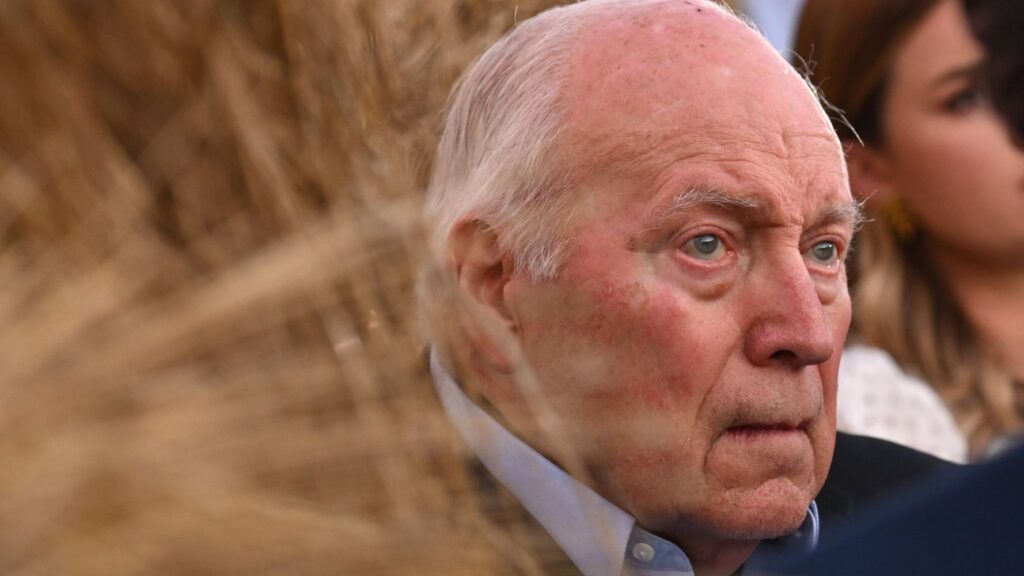Dick Cheney, the former US vice president who oversaw the invasions of Afghanistan and Iraq and the so-called “war on terror”, died on Tuesday at the age of 84.
Cheney’s family said in a statement that the former vice president died from complications of pneumonia and cardiac and vascular disease.
“For decades, Dick Cheney served our nation, including as White House Chief of Staff, Wyoming’s Congressman, Secretary of Defense, and Vice President of the United States,” a family statement read.
“We are grateful beyond measure for all Dick Cheney did for our country.”
Cheney, who served in the Republican administration of President George W Bush between 2001-2009, began his political career in 1969, when he worked alongside Donald Rumsfeld in Richard Nixon’s administration.
New MEE newsletter: Jerusalem Dispatch
Sign up to get the latest insights and analysis on
Israel-Palestine, alongside Turkey Unpacked and other MEE newsletters
Cheney and Rumsfeld were seen as key architects of the neoconservative doctrine of US foreign policy from the 1970s onwards, which favoured pre-emptive military force in order to restore US global dominance.
When Rumsfeld was appointed a White House counsellor, Cheney became his deputy; and a year later, when Rumsfeld became director of the Cost of Living Council, Cheney served as his assistant.
Cheney would then go on to serve as first deputy White House chief of staff and then chief of staff under Gerald Ford in 1974.
He moved to Capitol Hill after being elected as a representative from Wyoming, where he would remain during Ronald Reagan’s presidency.
‘Desert Storm’
Later, whilst serving as defence secretary under President George HW Bush, Cheney became an outspoken figure advocating for military force against Iraqi President Saddam Hussein, whose troops had invaded Kuwait.
Cheney persuaded Saudi Arabia’s King Fahd to allow the deployment of more than 550,000 US troops in the kingdom in the lead-up to Operation Desert Storm in the Gulf War.
When the ground offensive began, US and allied forces forces drove the Iraqis from Kuwait before reaching a ceasefire within 100 hours of the initial assault.
After Bill Clinton defeated George HW Bush for the presidency in January 1992, Cheney announced that he was leaving Washington and politics.
Because of Cheney’s long ties to the Bush family and experience in government, George W Bush later chose him to head his vice presidential search in 2000.

US Senate votes to repeal 2002 Iraq war authorisation
Read More »
The younger Bush then decided that Cheney was the best candidate for the job.
Upon his re-entry into politics, Cheney received a $35m retirement package from oil services firm Halliburton, which he had run from 1995 to 2000.
Following the 9/11 attacks, Cheney advocated for regime change in a number of Middle Eastern countries in order to replace them with governments more compliant with US foreign policy.
He pioneered the “One Percent Doctrine,” also known as the “Cheney Doctrine,” which stated that the US needed to preemptively attack anyone who could conceivably pose a threat to it.
Between October and December 2001 the Bush administration launched attacks on the Afghan Taliban regime for sheltering former al-Qaeda leader Osama bin Laden.
During this period, Cheney also played a leading role in making the case for the March 2003 invasion of Iraq.
Cheney predicted that US forces would be “greeted as liberators” in Iraq and that the troop deployment – which would last around a decade – would “go relatively quickly… weeks rather than months.”
Cheney and other war hawks in the Bush administration had claimed that Iraq had developed weapons of mass destruction (WMDs), and that Saddam Hussein was capable of making them available to organisations such as al-Qaeda, putting the US at imminent risk.
The Bush administration’s stated reason for going into Iraq – that Hussein possessed WMDs and was harbouring militants linked to the 9/11 attacks – turned out to be false.
Cheney was also strong supporter of waterboarding captured terrorist suspects, declaring himself to be a “strong proponent of our enhanced interrogation techniques”.

